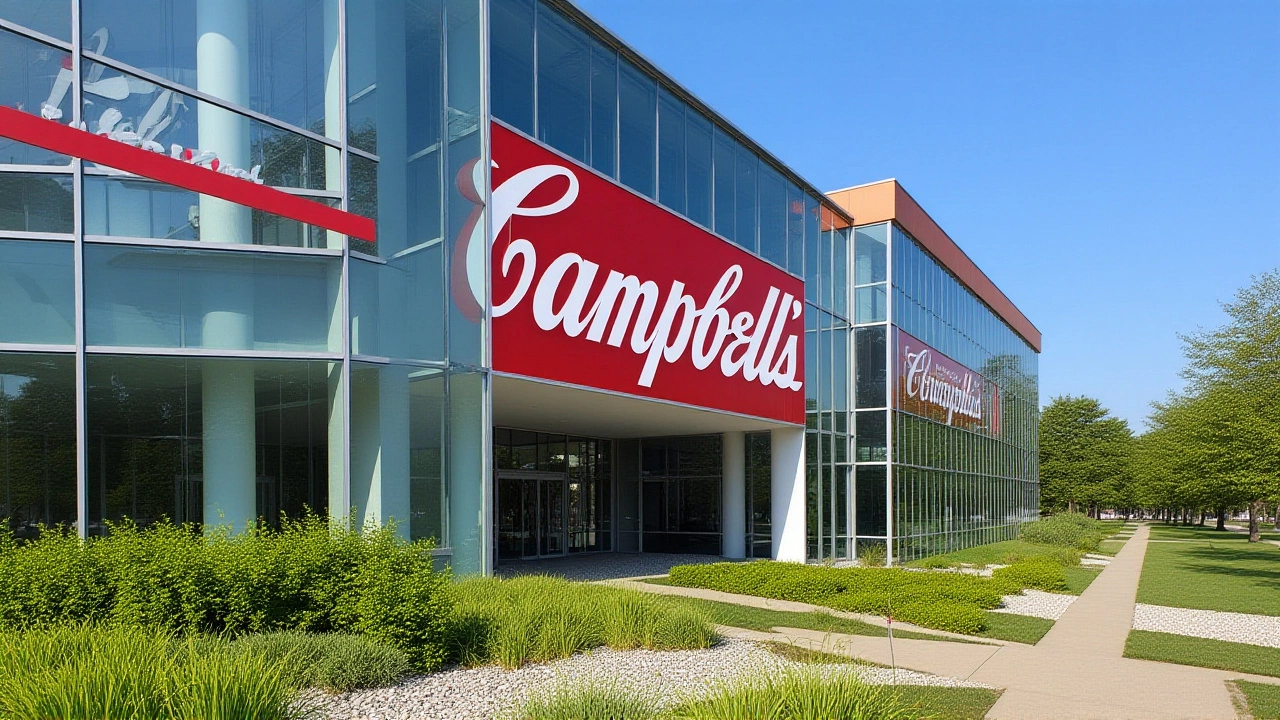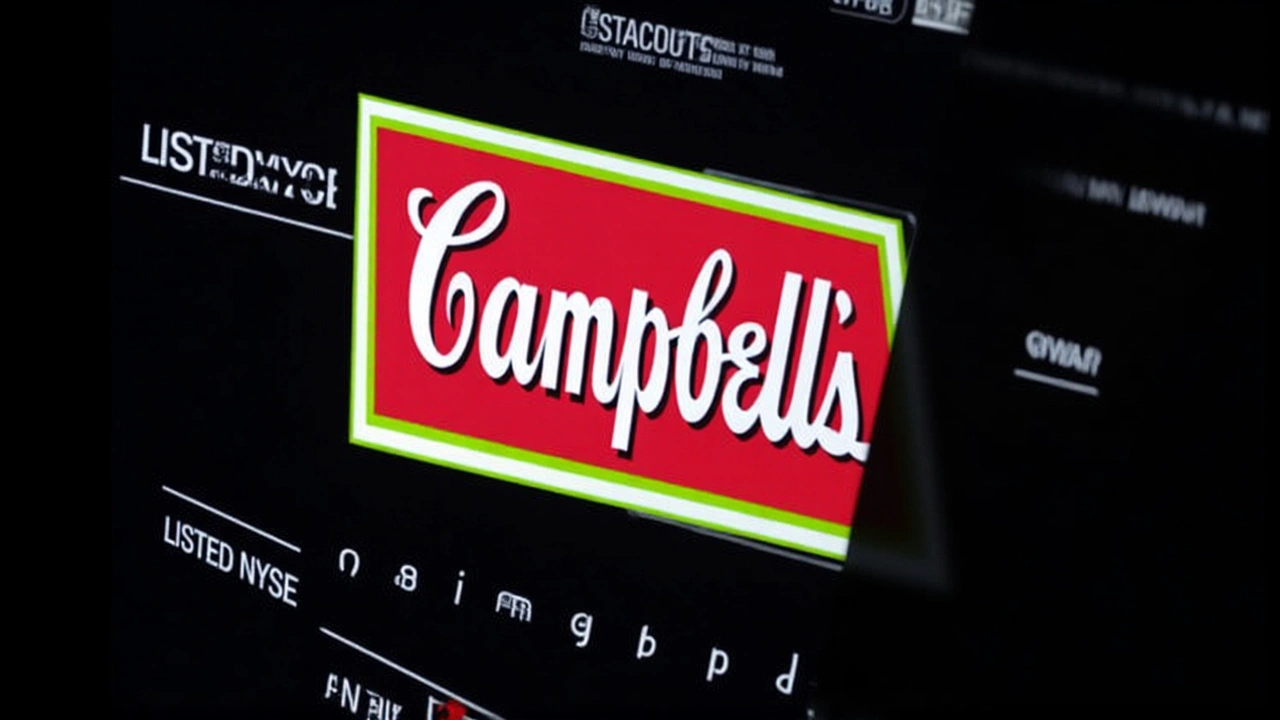When Martin Bally, Vice President and Chief Information Security Officer at Campbell Soup Company, allegedly told a former employee, "We have s--t for f**king poor people," he didn’t just cross a line—he ignited a firestorm that’s still burning. The recording, secretly made in January 2025 during a lunch meeting at an unnamed restaurant in Monroe, Michigan, wasn’t just crude. It was explosive. And it led to Bally being placed on temporary leave on November 24, 2025, as Campbell Soup Company scrambles to contain a public relations disaster that’s now drawing state regulators, social media outrage, and a federal lawsuit.
"Who Buys Our S--t?" The Recording That Shook a Legacy Brand
The audio, first obtained by Local 4 (WDIV-TV) and released publicly on November 24-25, 2025, captured Bally disparaging the company’s own products with shocking candor. "Who buys our s--t? I don't buy Campbell's products barely anymore," he said. "It's not healthy now that I know what the f---'s in it. Bioengineered meat—I don't wanna eat a piece of chicken that came from a 3-D printer." The comments were made during a meeting with Robert Garza, a former IT analyst at Campbell’s Monroe facility. Garza, who had worked at the company for over five years with no disciplinary record, told investigators he recorded the conversation after feeling "sick, pure disgust" at Bally’s tone. "I had an instinct something wasn’t right," Garza later told his attorney, Zachary Runyan. "I didn’t think he was joking. I thought he meant it." What made it worse? Just minutes before making those remarks, Bally had praised Garza’s work. "You’re doing a great job," he reportedly said. Then, moments later, he called the company’s food "s--t for f**king poor people." Garza reported the comments to his supervisor, J.D. Aupperle, on January 10, 2025. Twenty days later, on January 30, 2025, he was fired."I Wasn’t Fired for Performance. I Was Fired for Speaking Up."
Garza’s lawsuit, filed in Wayne County Circuit Court on November 21, 2025, alleges far more than just tasteless remarks. It claims Bally regularly came to work under the influence of marijuana edibles and made racially charged comments—including blaming "Indians" for tech failures in an expletive-laced tirade. The suit says Bally viewed himself as untouchable: "He had no filter. He believed he was a C-level exec, so he could say whatever he wanted." Campbell Soup’s official response has been a two-pronged defense: deny the substance of the claims, and distance the speaker from the product. "The comments heard on the recording about our food are not only inaccurate—they are patently absurd," the company said in a statement to Local 4. To Business Insider, they added: "Keep in mind, the alleged comments were made by a person in IT, who has nothing to do with how we make our food." But here’s the twist: Bally also claimed in the recording, "We don’t own a plant. Somebody else manufactures it for us," calling it "smoke and mirrors." That contradicts Campbell’s public messaging about quality control and supply chain transparency. And now, Florida Attorney General James Uthmeier has jumped in, announcing on X (formerly Twitter) on November 24, 2025: "Florida law bans lab-grown meat. Our Consumer Protection division is launching an investigation and will demand answers from Campbell’s."Stock Drops, Social Media Explodes, and the Company’s Reputation Hangs in the Balance
On November 25, 2025, Campbell Soup Company stock closed at $30.42, down 0.62%—a small dip, perhaps, but symbolic. The real damage is in perception. Videos of Bally’s comments have been shared over 8 million times across TikTok, X, and YouTube. Hashtags like #CampbellsLies and #3DPrinterChicken trended for three days straight. A viral post from a Michigan mother read: "I feed my kids Campbell’s soup because it’s affordable. Now I’m told the guy who runs IT thinks it’s garbage?" The company’s insistence that their chicken comes from "long-trusted, USDA-approved U.S. suppliers" rings hollow to many. Why? Because Campbell’s doesn’t produce its own meat—it outsources. That’s standard in the industry. But Bally’s comment didn’t just reveal ignorance—it revealed contempt. And in an era where consumers care deeply about transparency, that’s a death sentence.
What Happens Now? The Legal and Cultural Fallout
The internal investigation into Bally is ongoing. But even if he’s cleared of misconduct, the damage to the brand may be irreversible. The lawsuit against Bally, Aupperle, and Campbell Soup Company could open the floodgates for other employees to come forward. Garza’s case isn’t just about one man’s termination—it’s about a culture of silence. Legal experts say this could set a precedent. "If a high-level executive makes racist, drug-related, and product-disparaging remarks—and the company fires the whistleblower instead of the executive—that’s not just unethical. It’s illegal," said employment lawyer Dr. Lena Mitchell of the University of Michigan Law School. "This isn’t about soup. It’s about accountability." Meanwhile, Florida’s investigation could lead to fines or forced labeling changes. Other states may follow. And Campbell’s, a 155-year-old brand built on trust, now finds itself defending not just its ingredients—but its soul.
Background: A Company Built on Convenience, Now Questioning Its Values
Campbell Soup has long been a staple in American pantries. Founded in 1869 in Camden, New Jersey, it became a symbol of mid-century comfort food. But in recent years, it’s struggled to keep up with shifting tastes. Sales of canned soups have declined as consumers demand organic, non-GMO, and plant-based options. The company has responded with acquisitions like Garden of Eatin’ and V8, but critics say the core product line still feels outdated. The Bally incident didn’t create this crisis—it exposed it. Consumers aren’t just angry about a bad quote. They’re angry that a company they trusted to feed their families might have leaders who look down on them.Frequently Asked Questions
Did Campbell Soup actually use 3D-printed or bioengineered meat in its products?
No, according to Campbell’s official statements, the chicken used in its soups comes from USDA-approved U.S. suppliers and is not bioengineered or 3D-printed. The company has repeatedly denied using lab-grown meat, and Bally’s comments were made by an IT executive with no role in product development. However, the public perception remains damaged because the company outsources manufacturing, creating ambiguity about its supply chain transparency.
Why was Robert Garza fired after reporting Bally’s comments?
Garza’s lawsuit claims he was fired in retaliation for reporting Bally’s offensive remarks, despite receiving positive performance reviews. He had no prior disciplinary record, and his supervisor, J.D. Aupperle, reportedly approved his termination within days of the report. Legal experts say this timing strongly suggests retaliation, which violates federal whistleblower protections under the Sarbanes-Oxley Act and Michigan employment law.
What legal consequences could Martin Bally face?
Bally could face civil liability under the lawsuit for racial harassment, hostile work environment, and wrongful termination conspiracy. If criminal charges are pursued—for example, if evidence shows he was intoxicated at work—he could be charged under Michigan’s workplace drug laws. His employment contract may also be voided for breach of conduct clauses. The company could also be held vicariously liable if it’s proven they knew or should have known about his behavior.
How is Florida’s investigation affecting Campbell Soup?
Florida law prohibits the sale of lab-grown meat, and Attorney General James Uthmeier’s investigation could force Campbell’s to prove its meat sourcing complies with state regulations. If the company is found to have misled consumers—even indirectly—it could face fines, mandatory labeling changes, or a ban on sales in Florida. With 22 million residents, Florida is a critical market, and this investigation adds regulatory pressure beyond public opinion.
Is this the first time Campbell Soup has faced a scandal like this?
No. In 2018, the company faced backlash over the use of high-fructose corn syrup and sodium levels in its soups, leading to reformulations. In 2021, it was criticized for laying off hundreds of workers during the pandemic while executives received bonuses. But this is the first time a senior executive’s private remarks—captured on tape—have directly contradicted the company’s public image, making the damage uniquely personal and viral.
What should consumers do now?
Consumers can check Campbell’s ingredient sourcing page for updates, support independent brands with transparent supply chains, or contact the company directly via their customer service portal. Many have already switched to store brands or organic alternatives. The company’s next 90 days—particularly any public apology, policy changes, or leadership overhaul—will determine whether trust can be rebuilt.
